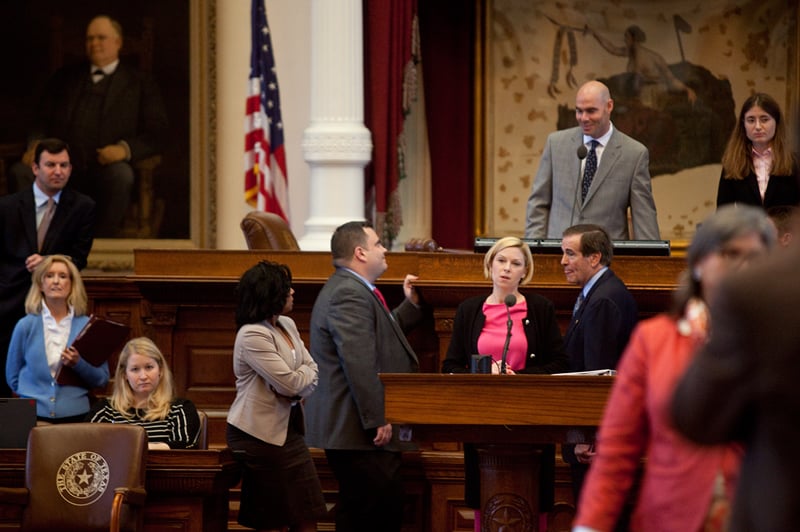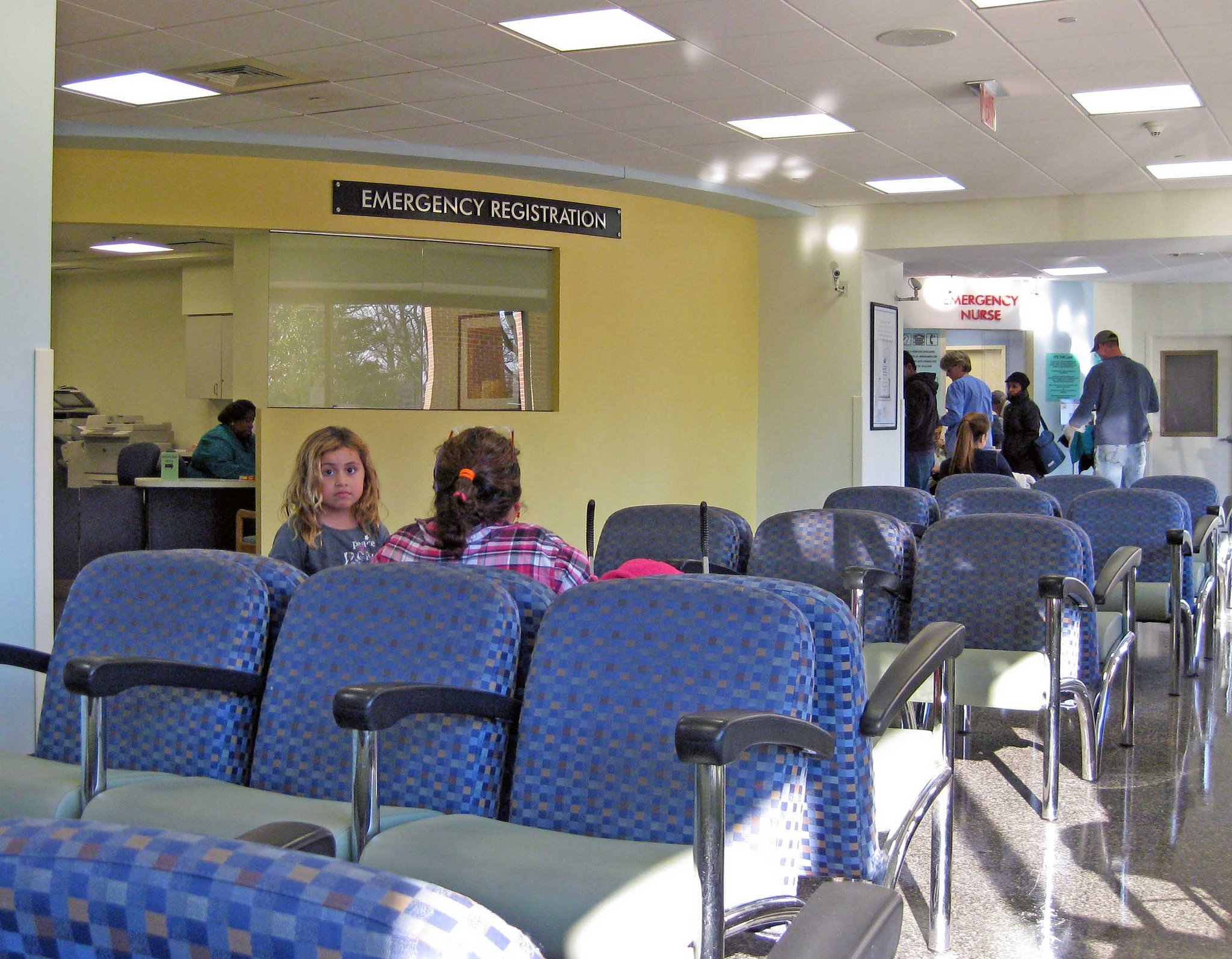
UPDATED: Federal Judges Disregard Impact of Abortion Law on Poor Women

Above: Rep. Sarah Davis (R-Houston), the only Republican to vote against the omnibus abortion restrictions last special session, defends her amendment on House Bill 2, excepting rape and incest from the 20-week abortion ban.
Update, June 10, 2015, 11:37 a.m.: Attorneys with the Center for Reproductive Rights, representing abortion providers in the case, on Wednesday asked the U.S. Fifth Circuit Court of Appeals to halt the implementation of House Bill 2 while they seek an appeal from the Supreme Court of the United States.
Original post:
In an opinion largely upholding Texas’ strict 2013 abortion law, three federal appeals judges disagreed that poor women face significant barriers to abortion as the number of clinics dwindles.
The long-awaited ruling, issued Tuesday by a three-judge panel of the U.S. Fifth Circuit Court of Appeals, is expected to lead to the closure of all but eight abortion clinics in Texas, forcing some women to travel hundreds of miles to the nearest facility. Abortion providers have vowed to appeal to the U.S. Supreme Court.
The panel upheld provisions of House Bill 2 that require Texas abortion clinics to meet surgical center standards and obtain hospital admitting privileges for physicians. The judges carved out one exception: the Whole Woman’s Health facility in McAllen, the last clinic in the Rio Grande Valley. In their ruling, the judges found that requiring women in McAllen to travel 235 miles to the nearest clinic in San Antonio was too burdensome. In a previous decision on House Bill 2, the Fifth Circuit established 150 miles as the standard for an undue burden. The judges did not grant the same exception to the remaining abortion provider in El Paso, arguing that women in West Texas can travel to New Mexico. (Notably, there are parts of West Texas—Presidio, for example—that are more than 150 miles from the nearest clinic, including ones in New Mexico.)
So far, House Bill 2 has forced more than half of the state’s abortion clinics to close. Currently, fewer than 20 abortion clinics are operating in Texas. Tuesday’s ruling is expected to leave just eight—in Austin, Dallas, Fort Worth, Houston and San Antonio.
The three-judge panel dismissed a lower court finding that poor women face not only additional travel expenses, but also practical barriers such as lack of child care, the inability to take time off work and internal immigration checkpoints.
“We do not doubt that women in poverty face greater difficulties,” the opinion reads, quoting a previous Fifth Circuit decision on House Bill 2. It goes on to say that in arguing their case, providers didn’t successfully prove that the law has an impact “on at least a large fraction of women.”
Further, the judges pointed to a 1980 Supreme Court case that downplays economic barriers:
“‘The financial constraints that restrict an indigent woman’s ability to enjoy the full range of constitutionally protected freedom of choice are the product not of governmental restrictions on access to abortions, but rather of her indigency.’”
The panel also agreed that the Legislature’s intent was “to protect the health and safety of women,” not to erode abortion access, as plaintiffs argued.
Attorneys for abortion providers are interpreting the McAllen exception cautiously. While the decision keeps the McAllen clinic open temporarily, it also seems to add a significant caveat. If another clinic were to open in, say, Corpus Christi, the McAllen clinic may then have to meet the ambulatory surgical center standards.
“The ruling is so narrow that we’re not sure yet whether it’s going to be of any practical issue to the clinics or its patients,” said Stephanie Toti with the Center for Reproductive Rights on a press call Tuesday afternoon. “We’re trying to figure out if [Whole Woman’s Health] will be able to provide services under the Fifth Circuit’s ruling.”
Abortion providers and their attorneys have 22 days to respond to Tuesday’s ruling, and Toti said the group plans to immediately ask the Fifth Circuit to halt the panel’s decision. If it’s not granted, they plan to turn to the U.S. Supreme Court.
Many Texans will not be able to end their pregnancies safely because they do not have the time or resources it takes to travel long distances to abortion clinics.
“If this decision is permitted to take effect, the impact will be devastating to women seeking abortion access in Texas,” Toti said.
Republican elected officials and anti-abortion organizations celebrated the decision. Attorney General Ken Paxton called it a “victory for life and women’s health” in a statement, and his sentiments were echoed by Gov. Greg Abbott and Lt. Gov. Dan Patrick.
Heather Busby, director of NARAL Pro-Choice Texas, however, called it a “travesty.”
“The [Fifth] Circuit has once again put their political ideology above the law and failed to recognize that HB 2 is an undue burden on Texans’ access to safe, legal and timely abortion,” she said in a statement. “Many Texans will not be able to end their pregnancies safely because they do not have the time or resources it takes to travel long distances to abortion clinics.”


